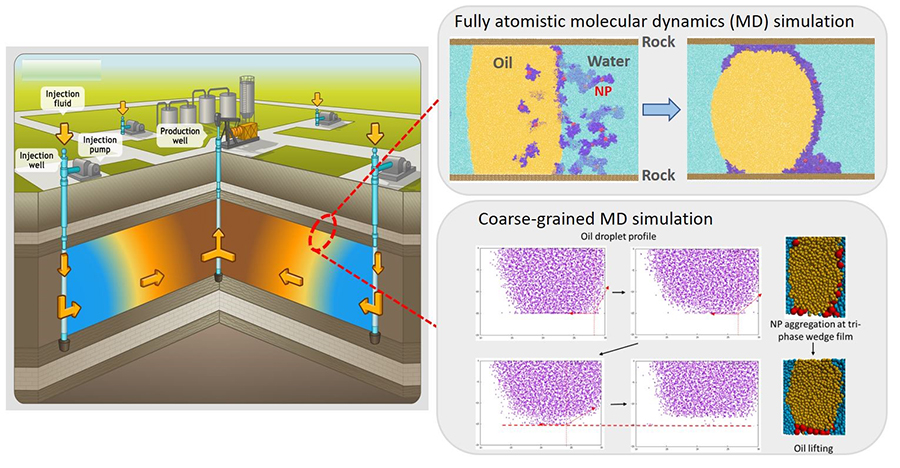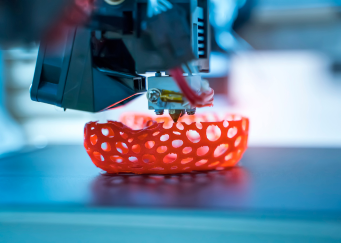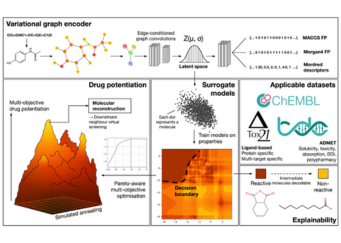Developing advanced functional polymer particles for enhanced flow assurance through the use of NSCC’s supercomputing resources.
Around 60% of oil deposits remain unrecovered in oil reservoirs even after traditional prime and secondary oil recovery methods. To increase oil extraction efficiency, various chemicals can be injected into oil reservoirs as an enhanced oil recovery (EOR) technique to further recover bypassed and residual oil trapped in the reservoir.
Among these chemicals, polymeric nanofluids, a combination of nanoparticles and polymers in water, have excellent potential for EOR applications. However, the designing of the most effective combination of nanoparticles (NPs) and polymers involves a large number of parameters. Screening the parameters using conventional experimentation is expensive and inefficient. The high temperature and salinity conditions of oil reservoirs are also inaccessible to experimental studies.
Researchers from A*STAR’s Institute of High Performance Computing (IHPC) are using NSCC’s supercomputing resources to run multi-scale molecular simulations to understand oil removal mechanisms and screen through the large number of design parameters so as to provide useful guidelines for experiments.

“Our simulations on atomistic scales probe the behaviour of complex multi-component systems, which utilise NSCC’s large number of high-performance CPU nodes and large data storage space. In addition, our mesoscopic simulations require intensive calculations with NSCC’s GPUs,” said Zheng Jianwei, Deputy Department Director and Senior Scientist at A*STAR’s IHPC.
To find out more about the NSCC’s HPC resources and how you can tap on them, please contact [email protected].
NSCC NewsBytes July 2020
Other Case Studies
Using Digital Twin Technology to Optimise the Industrial 3D Printing Process
Researchers from the Institute of High-Performance Computing (IHPC) are utilizing supercomputers to create a digital twin that furnishes users with comprehensive information...
Accelerating electric vehicles research through HPC
Researchers from A*STAR IHPC leverage supercomputing resources to improve the performance of lithium-ion battery technology With the ever-increasing demand in energy storage...
Advancing Drug Discovery Research using NSCC HPC resources
Researchers from Nanyang Technological University (NTU) are applying variational graph encoders as an effective generalist algorithm in computer-aided drug design (CADD)....


